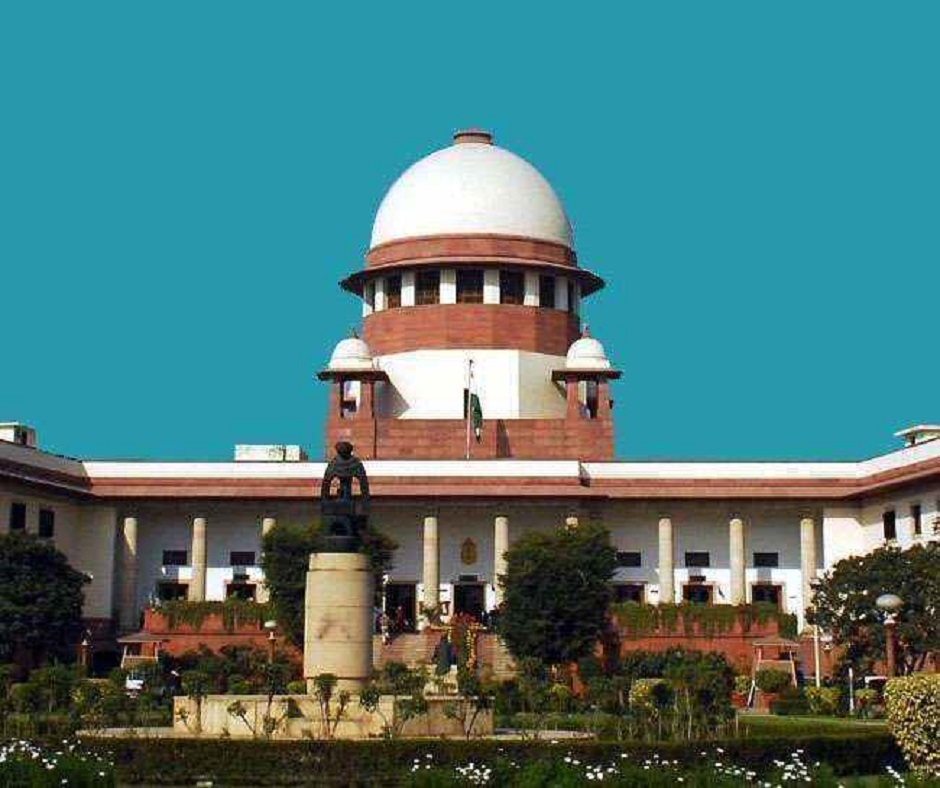
New Delhi: While hearing a bunch of petitions in Pegasus case, the Supreme Court on Thursday (August 5) observed that the allegations about the Central government allegedly using Israeli software to spy on people “are serious if news reports are correct”. The case was heard by a two-member Bench comprising Chief Justice of India NV Ramana and Justice Surya Kant. The Bench, however, also asked the petitioners why criminal complaint was not registered by persons affected by the snooping.
“We want to ask some questions. No doubt the allegations are serious if reports in newspapers are correct. The majority of petitions rely on foreign newspapers, but is there any verifiable material for us to order an inquiry?” asked the Bench during the hearing. The top court was hearing a batch of petitions seeking a court-monitored probe into the reports of the government allegedly using Israeli software Pegasus to spy on politicians, activists, and journalists.
Senior advocate Kapil Sibal, appeared for senior journalists N Ram and Sashi Kumar, and the Bench asked him why petitions have been filed now suddenly, when in 2019 itself, reports surfaced regarding the use of Pegasus to infiltrate WhatsApp.”The surveillance issue came to light two years ago, why come now suddenly?,” asked the Bench. “If you know your phone is hacked, why not file a criminal complaint?” “We are not saying petitions are based on hearsay and we cannot say there is no material, but with your access to international material, resources, they (petitioners) should have made more efforts,”Chief Justice told Sibal.
Senior advocate CU Singh appearing in another petition told the Bench that petitions have been filed now because the names of the persons targeted were not known in 2019. The names were known after a forensic analysis was done by an international agency, he added. Senior advocate Meenakshi Arora, appearing for MP John Brittas of Communist Marxist Party of India (Marxist) contended that the issue of surveillance was raised in Parliament in November 2019 and the then minister of IT Ravi Shankar Prasad had said there was no unauthorised interception.
At the outset, Sibal contended that the Pegasus is a “rogue technology” which enters our lives without our knowledge and it surveys every moment. “It penetrates into our national internet backbone. It is an assault on privacy, dignity and values of our republic,” he said while adding that this spyware is only sold to government agencies and can’t be sold to private entities. NSO technology is involved in the international arena, said Sibal. Sibal further argued that journalists, public figures, constitutional authorities, court officers, academics all are targeted by spyware. “The government has to answer who purchased it? How much was spent? Where was the hardware placed? Why did the government not register the FIR, it’s a matter of our privacy. Only the government will be able to tell us facts,” he said.”This morning we came to know that registrars serving in this court and an old number of a member of the judiciary is also mentioned in the list of spyware. Pegasus can even take photos and videos. That means if I move around in my private moments, they can watch me, they can activate my camera, my mic,” argued Sibal.
He contended that the NSO says its products are used by Central agencies to fight terror, by that means all journalists, academicians, activists, court staff are terrorists now if their names are included in the list. Senior advocate Shyam Divan appearing for one of the petitioners, Jagdeep Chokkar, said his client is an academician and his phone was under surveillance. “For a private citizen to find out that spyware has been turned on him by the government, it is something unconstitutional. It constitutes war by the government on the citizen,” he submitted.
Senior advocate Rakesh Dwivedi appearing for journalist SNM Abdi referred to media reports about forensic examinations suggesting surveillance of his phone. He argued that “As regards filing complaints, this is a matter of very wide dimensions. This is not a case of an individual’s phone being bugged, it is mass action. It is a case where the government of India should have taken action on its own.” Dwivedi further contended that a news report confirmed at least 40 journalists were targets or potential targets. “This is a larger issue involving constitutionality and not just criminality. Ordinary individuals who are writing on issues that concern the government cannot be subjected to surveillance.”
Senior advocate Arvind Datar argued that the phones of many persons might have been compromised and the matter should be taken up as a class action case.”As per IT Act Section 43, we can file suit for damages, however, we don’t know who has hacked our phones, therefore civil remedy is useless, therefore there is no provision for filing FIR,” Datar said.”Today 300 people have come to light. God knows how many others are there – 300 or 3000? Who else will take cognizance of this apart from the judiciary? The Judiciary needs to take this as a class action kind of proceeding,” added Datar.
Advocate ML Sharma, also a petitioner in the case, said that the spyware allows a person sitting in America or elsewhere to open the phone using a password and any document can be planted.The Bench then asked the petitioners to serve a copy of their petitions to the Central government’s law officers and it would take up the matter. It said that without the Central government present in the hearing, the bench cannot proceed as of now.
Among other complaints, the Editors’ Guild of India, in its petition filed two days ago, requested the Supreme Court to seek details from the government on the spyware contract and a list of those targetted.
Bureau Report
Leave a Reply